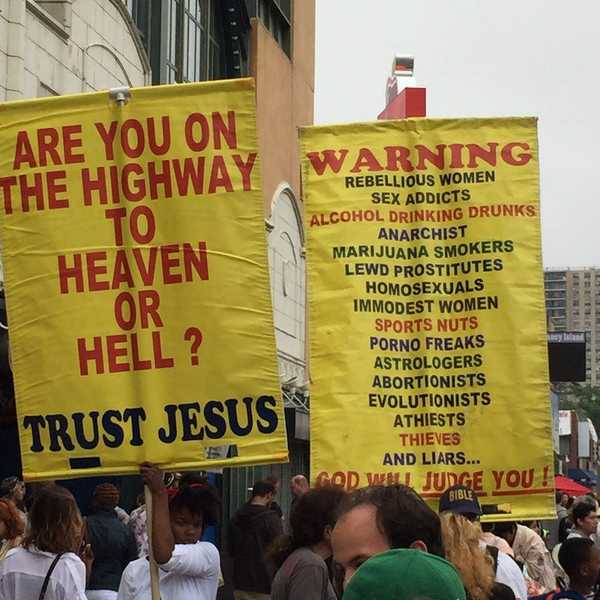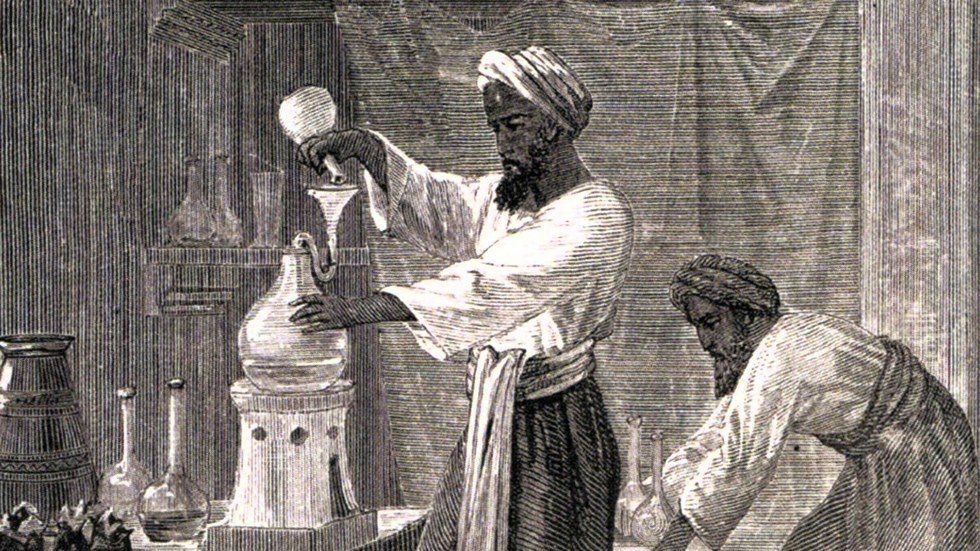As we reflect back on the year thus far, we can notice a growing trend of regressive elements in the Western world. Whether it is the British exit from the European Union, election of Donald Trump in the United States, or any of the other far right wing nationalist movements that have had progress across Europe and the United States. This nationalistic fervor that is driving societies into isolation and Xenophobic and authoritarian tendencies is backlash for a perceived threat, multiculturalism. To these cultural fundamentalists, there is a concept of "cultural purity"; and that external cultures from certain regions of the world are polluting their pure system. Such threats being perceived is that of the cultures of Islam. Being a the second major religion with over a billion people, Islam spans many regions of the world and consists of numerous cultures and nationalities.
If we are honest in our assessment of history, this threat of Islamic culture somehow unraveling western civilization is very baseless. It is arguable even that the Islamic civilizations that inhabited north Africa, the Middle East, and elsewhere saved Europe from the dark ages by preserving European knowledge and advancing in other fields. The following describes what events resulted in the dissent of western civilization into the dark age and how Islam resurrected it from the precipice.
When the Roman Catholic Church was established following the Council of Nicaea in 425 AD, it inherited the Roman military of the western empire; which it used to ensure its hegemony following the collapse of the Western Roman Empire. Religions in those days acted as states and governments, they are what we think of as culture and civilizations today. As institutions such as the Roman bureaucracy and state apparatus started to collapse and unravel in the western half of the empire, the hierarchical organization of the Roman Catholic Church superseded governmental institutions as decision maker. Feudalism evolved as a result.
From roughly it's on set in for 425 AD-800 AD The Catholic Church used the Roman military as a means of crashing all pagan groups and competitive and Christian groups such as the Gnostics in a literal genocidal campaign. Much of the works of these groups being exterminated were associated with the foundations of the scientific and mathematical knowledge of the era of antiquity. Groups like the Pythagoreans and Neoplatonists for example (followers of the mathematical group created by Pythagoras in Greece, and the philosophical order of new Platonists who are followers of Greek philosopher Plato) fled to the Middle East, North Africa, and Eastern Europe. In North Africa the Islamic empires that were established (600s-800s timeframe) became a refuge for these Greco-Roman pagan works as well as gnostic Christian works within the empires due to the Islamic mystical sects and philosophical traditions. Others who sought refuge in the Middle East settled in the Islamic and Zoroastrian groups, molding and blending into philosophical orders such as the Rosicrucians. Those who settled in eastern European areas further away from Christendom (i.e. Western Europe under Roman Catholic hegemony) went on to form the Eastern Orthodox Church, which had schism-ed with the Catholic Church in 1054 AD.
The hegemonic order of Christendom in the west lasted roughly 800 A.D. to 1200 A.D. As the Catholic Church expanded out it's genocidal campaigns via the Crusades against non-European forces such as trying to reclaim the holy land of Jerusalem, against internal Christian "enemies" such as sacking Constantinople, and against the empires of Islam.
As the crusades occurred from the 1000s-1500s AD, Europeans not only plundered Islamic material goods like gold and luxury items; they started to stumble upon the long lost works of Aristotle, Plato, Socrates, Pythagoras, Lost Gospels of Thomas, Philip, Judas, Mary Magdalene, Jesus, and expanded versions of others, Egyptian philosophical and religious texts, Greco-Roman pagan philosophical and religious texts like those of Hermes Trismegistus, all the knowledge that had once existed in Europe prior to Catholic hegemony. Prior to the destruction of the archives, libraries, temples, and culture of the multicultural pagan Greco-Roman Egyptian Hellenistic world of antiquity.
Crusaders recognize the value of this knowledge, establishing philosophical military orders such as the Knights Templar. When Europeans became aware of these true treasures of knowledge, the floodgate of knowledge from Islamic civilization became a demand greater than material resources.
As these great works started returning to Europe, culture started to shift in certain regions. Gnostic revivals sprung up in numerous places, most notably the Cathars in France. A prosperous multi cultural region that was strongly egalitarian and was autonomous to Catholic dictation. The third Crusade resulted in 1189 A.D. which resulted in the Catholic Church leading a massive army to crush and exterminate the Cathars. The fourth Crusade occurred in 1198 AD, in which the previously mentioned plundering of Constantinople, the capital of the Byzantine Empire, resulted. The Byzantine Empire was the western half of the Roman empire that had been retained during the western's collapse and its dark age; but also a major Christian city that did not follow catholic hegemonic interpretation and dictation of Christianity. While Constantinople and the Byzantine Empire was technically part of Christendom, it was a multicultural city that did not purify its archives.
But nonetheless, because of the preservation, respect, and wisdom of the Islamic Golden Age, Europe was able to free itself from its own domination. The floodgate of knowledge once purged and branded as heretical asserted back into the European consciousness. Gnostic works, being a Christian group that interpret doctrine in a manner that was multicultural and symbiotic with pagan works; became the root philosophy that drove what became known as the Renaissance. The revival of Gnosticism was known as the Hermetic Movement, consisting of most of the great scientists such as Kepler, Copernicus, Newton, and the original martyr of the hermetic scientific movement Giordano Bruno. The Hermetic movement destabilized Catholic hegemony to the point that the Protestant Reformation was able to occur. The entire European Renaissance and all subsequent results of the renaissance, in terms of high civilization achieved by Europe and later North American civilizations such as our own; is largely thanks to the Islamic civilizations that inhabited North Africa and the Middle East.




















